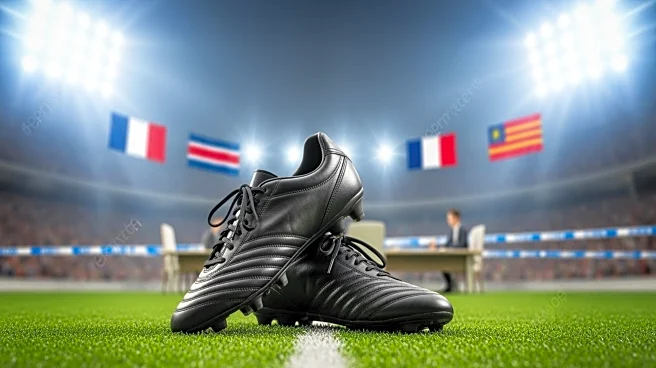What's Happening?
The United States Men's National Team (USMNT) showcased its depth in a recent friendly match against Australia, overcoming the absence of star player Christian Pulisic due to a suspected hamstring injury.
Coach Mauricio Pochettino made several changes to the lineup, which proved effective as the team secured a come-from-behind victory. Haji Wright, who has been in excellent form with Coventry City, scored both goals for the USMNT, highlighting the team's ability to adapt and perform despite injuries. The match also saw contributions from Cristian Roldon, who assisted both goals, indicating a competitive edge within the expanded player pool under Pochettino's leadership.
Why It's Important?
The USMNT's ability to perform well without key players like Christian Pulisic is crucial as they prepare for upcoming international competitions, including the World Cup. The depth demonstrated in this match suggests that the team can handle unexpected challenges and maintain competitive performance. This development is significant for the team's strategy, as it allows Pochettino to explore different player combinations and build a robust squad capable of competing at high levels. The emergence of players like Haji Wright and Cristian Roldon as reliable options adds to the team's versatility and resilience.
What's Next?
Looking ahead, the USMNT will continue to refine its lineup and strategies as they prepare for future matches, including potential challenges against stronger international teams. Coach Pochettino will likely focus on maintaining the competitive edge within the squad and ensuring that players are ready to step up when needed. The team's performance against Australia provides a positive outlook, but upcoming matches, such as those against Uruguay, will test their readiness and adaptability further.
Beyond the Headlines
The USMNT's recent performance highlights the importance of fostering a competitive environment within the team, where players are motivated to prove their worth and contribute effectively. This approach not only strengthens the squad but also enhances the overall team dynamics, creating a culture of resilience and adaptability. As the team continues to evolve, these factors will play a crucial role in their success on the international stage.












